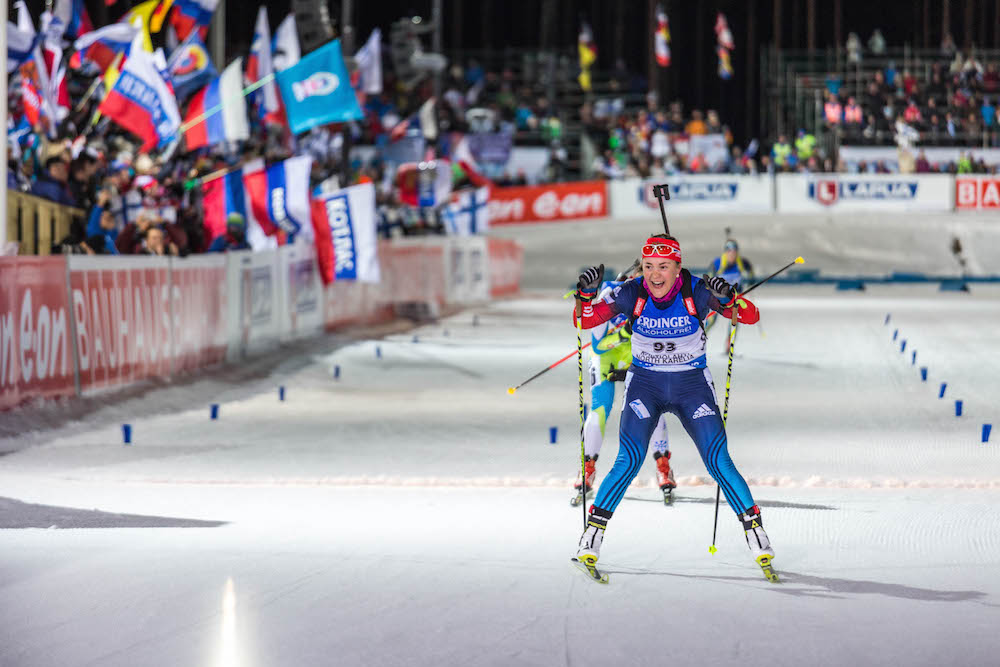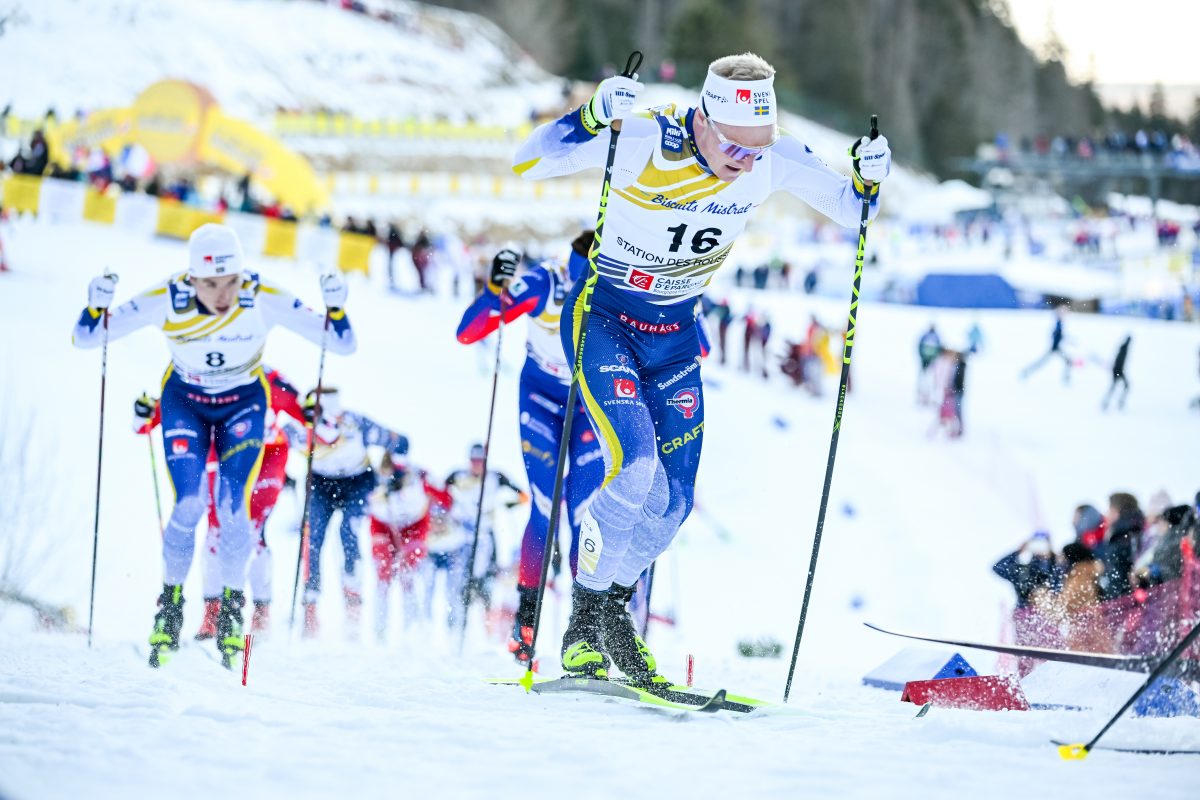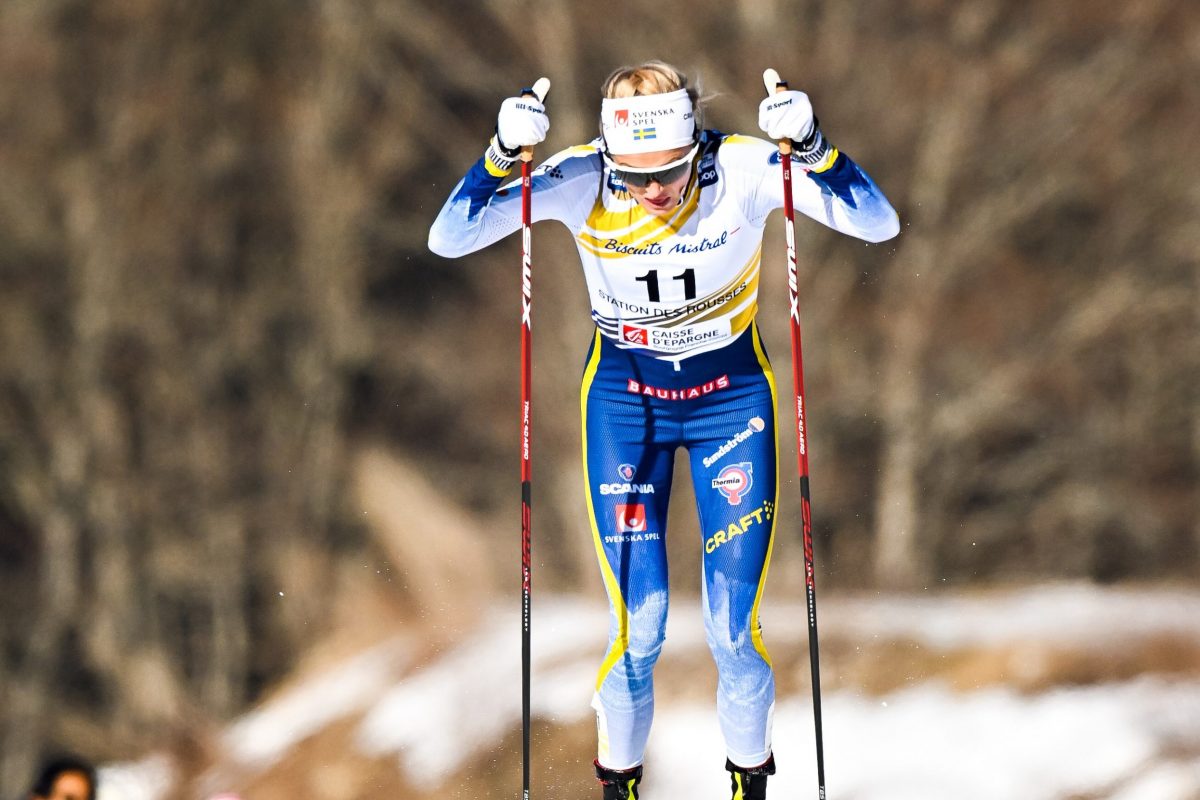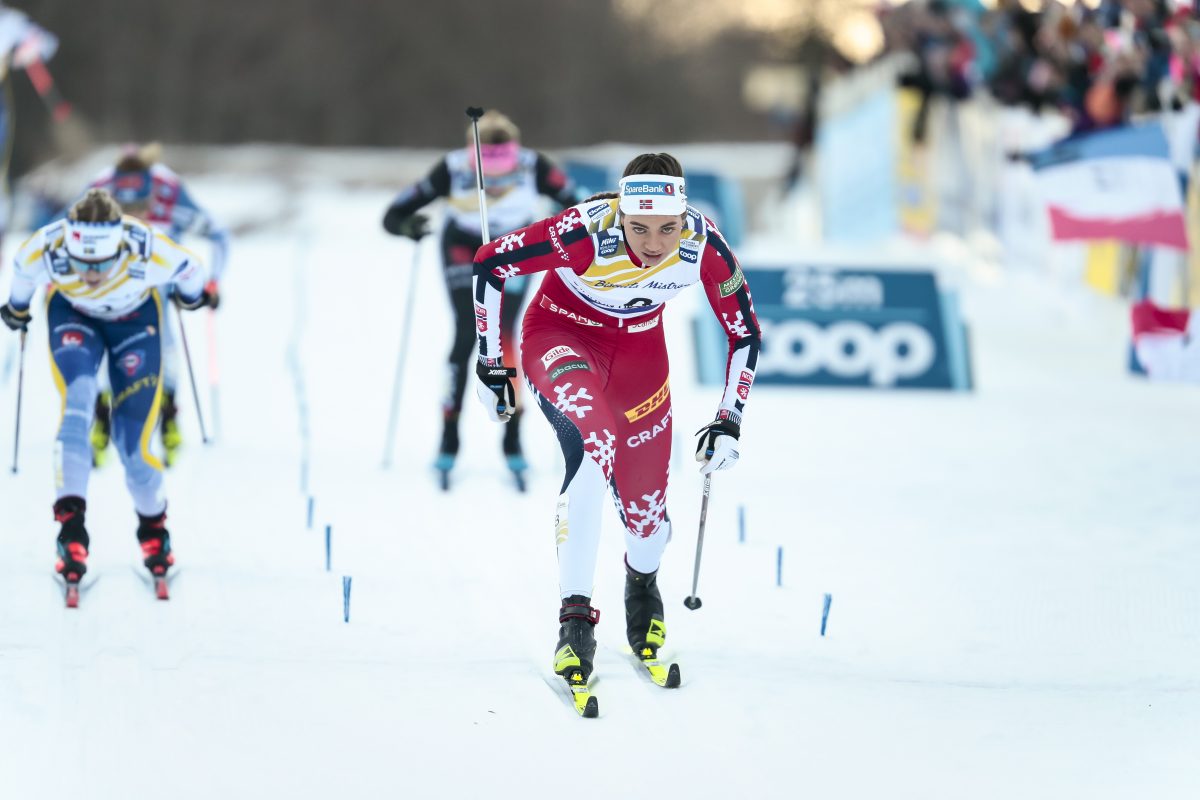
Earlier this week it was announced that cross-country skier Sergey Ustiugov and biathlete Anton Shipulin were among the Russian athletes excluded from the 2018 Olympic Games coming up in PyeongChang, South Korea, next month.
The question arose: just who would be representing Russia?
The list of the 169 athletes on the “Olympic Athletes of Russia” team (which is not supposed to be confused with the Russian Olympic Team, which has been banned) has now been released.
For nordic sports, no athletes who had competed in the 2014 Olympics in Sochi, Russia – where the anti-doping process was manipulated to protect Russian athletes who had used banned performance-enhancing drugs – are included.
The cross-country ski team is nevertheless reasonably full. According to the Russian Ski Federation, the athletes set to compete are Alexander Bolshunov, Alexei Vitsenko, Andrei Larkov, Andrei Melnichenko, Alexander Panzhinsky, Denis Spitsov, Alexei Chervotkin, Julia Belorukova, Alisa Zhambalova, Natalia Nepryaeva, Anna Nechaevskaya, and Anastasia Sedova.

The team size of five women and seven men is nearly identical to the team size from 2014, when five women and eight men represented Russia. Six of those 13 athletes who competed in Sochi have since been disqualified for doping.
For biathlon, the team for PyeongChang is tiny: just four athletes, two men and two women. According to the Russian Biathlon Union, Anton Babikov, Matvei Eliseev, Uliana Kaisheva, and Tatyana Akimova have been invited to PyeongChang. They can thus form a mixed relay team but Russia will be out of both the men’s and women’s relay competitions.
The International Olympic Committee (IOC) released information this week about how the list of invited athletes had been chosen. Some criteria were as expected: it had been previously announced that no athletes who had previously served doping suspensions would be on the list, barring biathletes Irina Starykh and Alexander Loginov as well as cross-country skier Natalia Matveeva.
“I think that the current situation around the Games is not easy, but we are Russian, and we will all survive,” Loginov – who just today won a silver medal in the sprint at Open European Championships – said in a Russian Biathlon Union press release (according to a translation). “I will sincerely support our guys who are going to the Olympics. ”
If an athlete’s name appeared on the “Duchess List”, a list of athletes allegedly receiving performance-enhancing drugs and whose anti-doping samples were covered up or manipulated, then that was also a disqualification, as expected.
But the IOC also used more evidence, for instance the Laboratory Information Management System (LIMS), a database which was copied from the Moscow anti-doping laboratory by a whistleblower and delivered to the World Anti-Doping Agency (WADA). The IOC relied, too, on information from international winter sports federations, checked Russian athletes’ whereabouts reports for discrepancies, and re-tested all previously collected anti-doping samples.
Finally, the IOC used “intelligence extracted from WADA’s ‘Speak-up’ whistleblower programme and other sources.”

For most of the athletes who were expected to represent Russia but were then found to be excluded – like Ustiugov and Shipulin – it is not known which one of these information sources led to them being disinvited from PyeongChang.
Additional notable absences are Ekaterina Yurlova-Percht, the 2015 World Champion biathlete in the 15 k individual, and Gleb Retivykh, who made the sprint finals in both of the last two cross-country World Cup weekends.
Instead, the Russian biathlon team will feature two World Cup podium finishers: Babikov, who won a World Cup and was part of Russia’s gold-medal winning men’s relay team at 2017 World Championships, and Akimova, who likewise has a win and a third-place World Cup finish to her name.
Those two have each competed in two World Championships. Neither Kaisheva nor Eliseev have ever competed in a senior World Championships. Eliseev has three World Cup top-tens in his career.
The cross-country team’s biggest stars will be its rising U23 athletes: Bolshunov, Chervotkin, Spitsov, Belorukova, Sedova, and Nepryaeva. All have their own collections of World Cup top-tens this season, including podiums by Belorukova and Bolshunov, and Sedova’s seventh-place finish in the multi-stage Tour de Ski.
Much older is Larkov, who also had a World Cup podium this season and was a member of Russia’s 2015 and 2017 World Championships teams, and 2010 Olympic sprint silver medalist Panzhinsky.
Chelsea Little
Chelsea Little is FasterSkier's Editor-At-Large. A former racer at Ford Sayre, Dartmouth College and the Craftsbury Green Racing Project, she is a PhD candidate in aquatic ecology in the @Altermatt_lab at Eawag, the Swiss Federal Institute of Aquatic Science and Technology in Zurich, Switzerland. You can follow her on twitter @ChelskiLittle.



